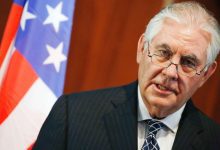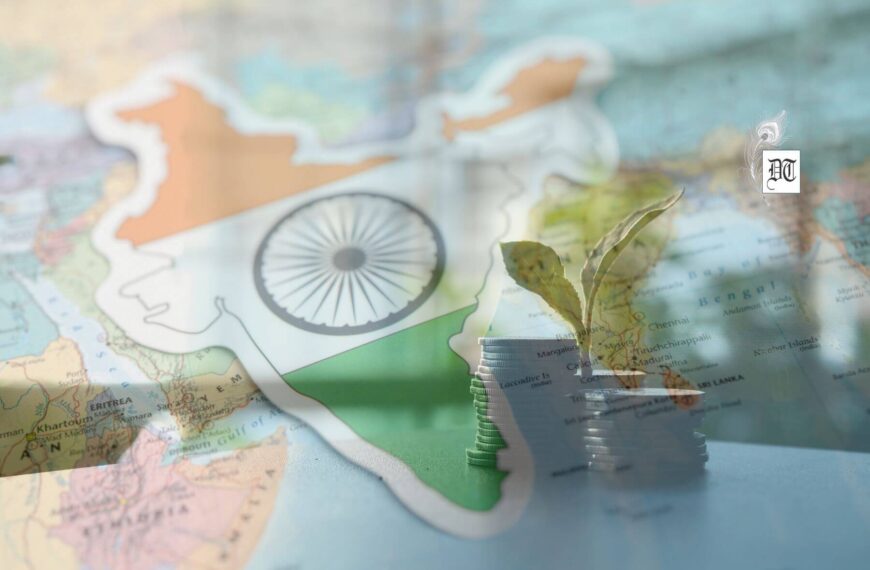The rest of the world may rail against Trump for triggering off a trade war by his action to slap 25 percent tax on steel imports and 10 percent on aluminum effective March 23, but Trump himself remained cool as a cucumber presumably under the plausible alibi that the U.S steel industry had for many decades pleaded and secured special protection from import particularly from Europe, Japan, South Korea and other Asian nations. Here’s an analysis, for Different Truths.
The signing of the controversial tariff hike on steel and aluminum by the U.S. President Donald Trump on March 8 in the White House in the presence of workers from the afflicted industries has generated not only a lively debate within the country but also globally. For a person who had successfully enacted a host of popular reality shows in television in the past, the optics and the theatrics that accompany his polemical decision as the first citizen of the world’s largest democracy count in terms of its wider ramifications. This is obviously to get a political message through and to reassure his voters that he is there to safeguard their livelihood interests.
No doubt, the rest of the world may rail against Trump for triggering off a trade war by his action to slap 25 per cent tax on steel imports and 10 per cent on aluminum effective March 23, but Trump himself remained cool as a cucumber presumably under the plausible alibi that the U.S steel industry had for many decades pleaded and secured special protection from import particularly from Europe, Japan, South Korea and other Asian nations by way of mechanisms such as trigger price, special tariff quota or persuading overseas producers to restrain exports gratuitously!
Stanford’s Hoover Institution Senior Fellow succinctly put the whole issue in a perspicuous perspective when he wrote in USA Today on March 5, contending that Trump wants to increase support for the Republican Party in steel-producing and aluminum-producing states.” It is the same reason he is so hostile to immigration because he knows the immigrants are likely to vote Democratic. Politics trumps sound economic policy every time in the Trump White House”, he perceptively put it adding that tax cuts, spending increases, a trade war would spike interest rates more quickly than markets anticipate!
Interestingly, even as the unilateral tariff hike in steel and aluminum grabbed media space and eyeballs, the deft President deflected the viewers’ attention and absorption by declaring on March 9 that he would meet with North Korean leader Kim Jong Un by May for high-level talks towards a nuclear-free Korean Peninsula! This has assuaged burgeoning global worries over the nuclear threat that both the U.S and North Korea were exchanging to exterminate each other, forgetting the obvious fact that in any such contretemps the rest of the universe would be ruinously and irreparably reduced to cinders. While a few of the popular channels in the U.S trace mysterious “Chinese connection” to the thaw from the icy relations between Trump and Kim, given the latter’s proximity to the Middle Kingdom, some of the scholars specialising in global trade also do not think that the tariff hike on steel and aluminum was in any way meant to browbeat China! This takes one to the oldest China-opener Republican President Nixon, who was sagacious enough to recognise the enduring and efficacious bilateral relations between the United States and Beijing, which his successor Trump is only living up to reinforce, even as there were some apparent aberrations in relations between the two mighty powers of late!
What lends credence to this conviction is that China was only the tenth largest supplier of steel to the US market in 2017 at $ 976 million largely because 94 percent of those exports were already subject to special tariffs. According to Peterson Institute for International Economics (PIIE) Senior Fellow Chad P. Bown, who based his calculations on the Trump administration’s analysis, the proposed tariffs on steel and aluminum would eliminate $14.2 billion of US imports in a year, out of which only less than five percent of the total was from China. More than 50 percent of the total trade losses or $7.5 billion would hit U.S military allies on whom Washington would have to count in any national emergency—the European Union, Canada, Japan and South Korea alone. That is the reason why Trump said on March 8 that his plan does exempt Canada and Mexico from the tariffs “if they grant concessions during ongoing negotiations to re-work the North American Free Trade Agreement (NAFTA)”—a trade pact the President long blasted. Without advancing many details in a flurry of tweets except to say that Canada “must treat our farmers much better”, while Mexico “must do much more on stopping drugs from pouring into” the United States. Australia being a strategic partner might also get the reprieve from the proposed levy before long, even as Trump said his proposal allows other countries to apply for relief from the new imposts.
In no other nation could such a policy of the incumbent administration be the subject of intense debate sans fear or favour as in the United States where the diversity and divides came into sharper focus. The administration is defending Trump’s unilateral action on the tariffs, which are stoutly opposed by most Republicans and Democrats in Congress—on national security grounds, seeking sanctuary under an obscure, rarely used legal provision to justify it both in terms of U.S law and the international trade rules. To boot top economic adviser Gary Cohen announced on March 6 his departure, after breaking ranks with President Trump on trade policy. Cohen played a key role in enabling Trump to enact a sweeping tax overhaul, coordinating with members of Congress. Iowa farmers fear that Canada, Mexico, and China would impose tariffs on their corn, soybeans, pork, and beef as a trade reprisal measure to the US tariff hike on steel and aluminum.
Meanwhile, the vocal verbal reaction emanated from the 27 member trading bloc European Union when its trade Commissioner Cecilia Malmstrom warned that Trump’s decision “will put thousands of European jobs in jeopardy and it has to be met by the firm and proportionate response”. The EU has threatened retaliatory tariffs on US goods including iconic products such as Florida orange juice, Wisconsin motorcycles, Kentucky bourbon, cane berries and blue jeans. This is inevitable instant reaction because, in 2017, the EU exported $6.2 billion of steel and $1.1 billion of aluminum to the U.S. With Canada and Mexico off the hook for the time being, the EU must perforce have to partake of the preponderant burden of the steep hike in tariffs as proposed by the Trump administration. Subtly, Trump hinted that he might favour excluding that North Atlantic Treaty Organisation (NATO) allies from the tariffs that are “paying the bills” by which he sought stepped-up defence outlays by the European countries for their own defence umbrella instead of expecting the US to foot the escalating expenses in perpetuity!
In sum, the U.S President used his unilateral trade policy at a time when the multilateral global body the World Trade Organization (WTO) was evidently losing its mojo and momentum to be the arbiter and savior for resolving global trade disputes!
G. Srinivasan
©IPA Service
Photo from the Internet





 By
By

 By
By
 By
By